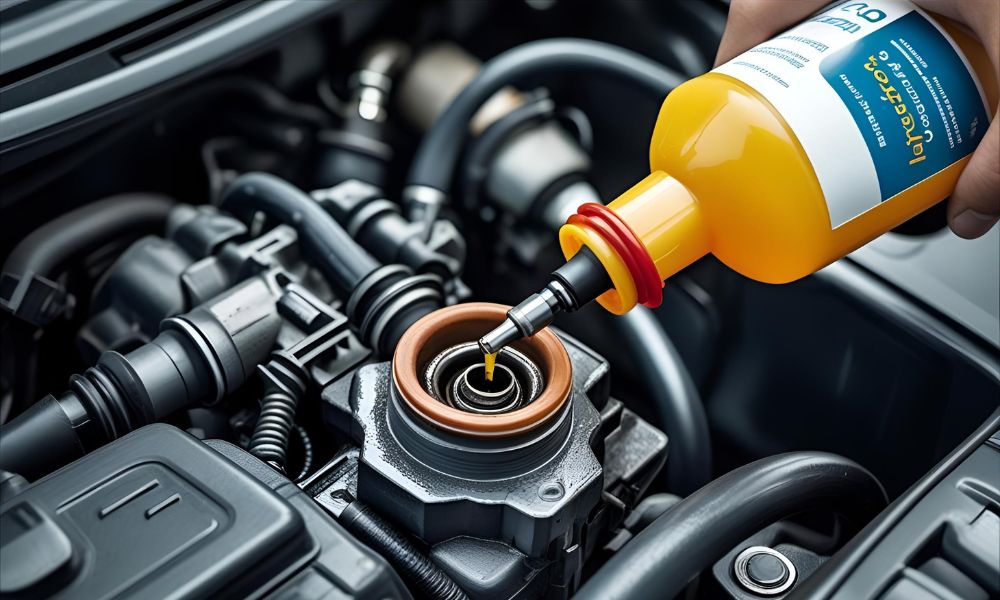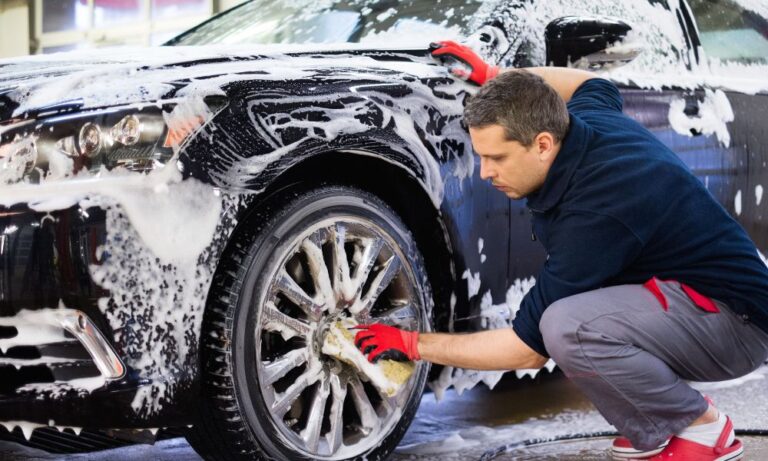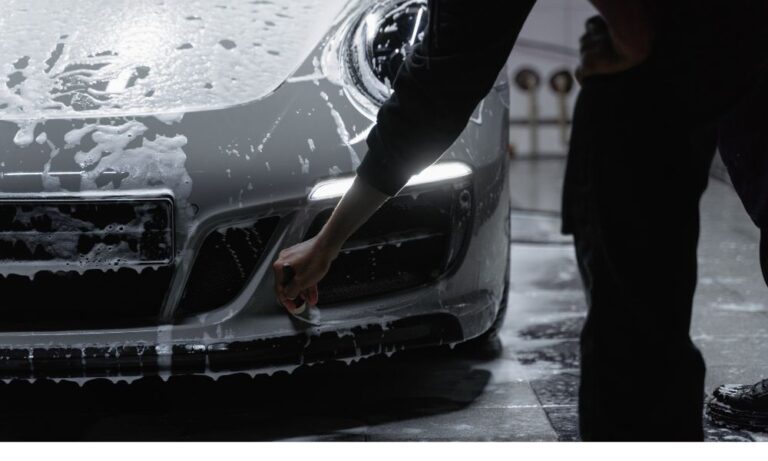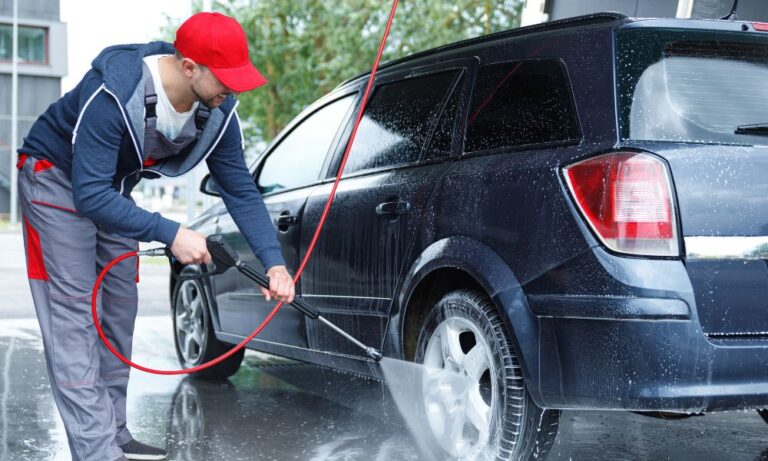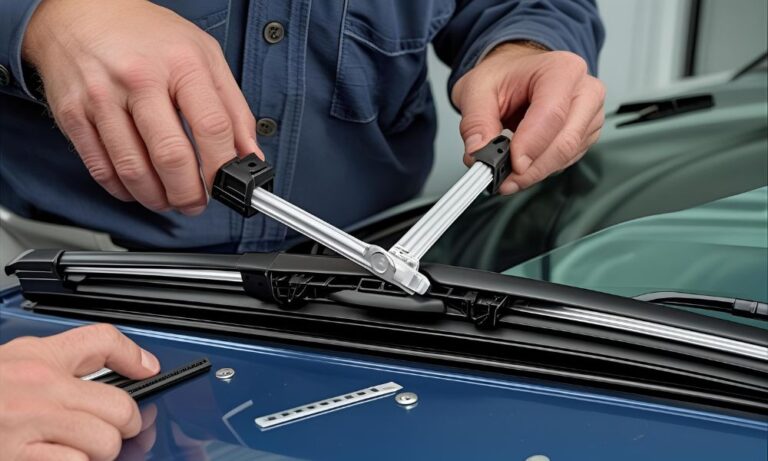How to Clean Fuel Injectors: A Step-by-Step Guide
The performance of the engine in your car is greatly influenced by the fuel injectors. By precisely delivering the appropriate quantity of gasoline into the combustion chamber, they facilitate effective fuel combustion and the best possible engine performance. However, carbon deposits, dirt, and other impurities may clog these injectors over time, reducing engine power, causing poor acceleration, and increasing fuel consumption. Gaining knowledge about how to clean fuel injectors may help you improve your car’s performance, reduce maintenance costs, and increase fuel efficiency. Everything you need to know about cleaning fuel injectors will be covered in this tutorial, from determining when they need to be cleaned to selecting the most effective techniques and equipment.
Why Fuel Injectors Matter for Your Car’s Performance
Spraying fuel into the combustion chamber at the ideal time for combustion is their main job. The engine will operate smoothly, effectively, and with the fewest pollutants if the air and fuel combination is correct. There might be a number of issues if the fuel injectors clog or malfunction. These may be anything from rough idling, poor engine performance, and reduced fuel efficiency to more serious problems like engine misfires. Thus, knowing how To clean fuel injectors is crucial to preserving the general well-being And lifespan of your car.
How Clogged Fuel Injectors Can Impact Your Engine
Numerous problems might arise from clogged gasoline injectors. The injectors may not provide the engine with the proper quantity of gasoline if they are clogged or unclean. This may cause the gasoline to burn unevenly, which might cause engine misfires and a discernible drop in power. Furthermore, increased exhaust emissions from blocked injectors may harm the environment even more. Poor fuel economy may result from the engine using more fuel to maintain the same performance when the injectors lose their efficiency. In summary, if you don’t clean your fuel injectors, your car may need expensive repairs and perform worse.
Signs Your Fuel Injectors Need Cleaning
Before diving into the cleaning process, it’s important to know when your fuel injectors need attention. The most common signs that indicate clogged or dirty injectors include:
- Decreased Fuel Efficiency: If you notice your vehicle’s fuel consumption has increased, it may be due to dirty fuel injectors.
- Poor Acceleration and Hesitation: A sluggish response when you press the accelerator is often caused by improper fuel delivery.
- Rough Idling and Engine Misfires: If the engine runs unevenly or misfires while idling, it’s likely that the fuel injectors are not functioning properly.
- Increased Exhaust Emissions: A build-up of deposits in the injectors can cause excessive exhaust emissions, affecting the performance of your catalytic converter.
What You Need to Know Before Cleaning Fuel Injectors
There are a few important things you should know before starting the fuel injector cleaning process. First, without the right equipment, it might be difficult to reach the fuel injectors, which are part of the engine’s fuel system. Before beginning any repair, it’s important to identify the kind of fuel injectors in your car since they come in a variety of designs and combinations. Lastly, even if it is feasible to clean injectors yourself, make sure you always have the proper tools and cleaning solutions to prevent harm.
Tools and Materials Needed for Cleaning Fuel Injectors
To clean your fuel injectors effectively, you’ll need a few basic tools and materials:
- Fuel injector cleaning kit or cleaning solvent
- Wrench set for removing the injectors
- Safety gloves and goggles
- Rags or towels for cleaning excess fuel
- Fuel injector testing equipment (optional)
Having the right tools at your disposal will make the cleaning process more straightforward and safer.
Methods for Cleaning Fuel Injectors: An Overview
There are several methods to clean fuel injectors, each with its pros and cons. The most common methods include:
- Manual Cleaning: This is the traditional approach and involves removing the injectors and using a cleaning solution or brush to scrub them clean.
- Professional Cleaning: Using ultrasonic or machine-based cleaning methods, professionals can clean injectors without removing them from the vehicle.
- Fuel Additives: Fuel injector cleaning additives can be added directly to the fuel tank to clean injectors while the engine runs.
Understanding these methods and choosing the one that suits your needs will help ensure the best results.
How to Clean Fuel Injectors Yourself: A Step-by-Step Guide
Cleaning fuel injectors yourself can be a cost-effective option if done correctly. Here’s a step-by-step guide:
- Step 1: Disconnecting the Fuel System: Before you begin cleaning the injectors, ensure the fuel system is properly shut off. This will prevent fuel leakage and protect you from potential harm.
- Step 2: Removing the Fuel Injectors Safely: Using a wrench, carefully remove the fuel injectors from the engine. Keep track of any seals or components that need to be reinstalled.
- Step 3: Inspecting Fuel Injectors for Damage: While removing the injectors, check for any cracks or damage that may indicate the need for replacement rather than cleaning.
- Step 4: Cleaning the Injectors: Use a fuel injector cleaning kit, which typically includes a cleaning solvent and a pressurized tool to flush the injectors. Follow the manufacturer’s instructions for optimal results.
- Step 5: Reassembling and Testing the Injectors: After cleaning, reinstall the injectors and check for leaks. You may want to run a test to ensure they are functioning correctly.
Using a Fuel Injector Cleaning Kit: How to Do It Right
A practical option for do-it-yourself cleaning is a fuel injector cleaning kit. Typically, these kits include hoses that connect to the fuel injectors, pressurized containers, and cleaning chemicals. Pay close attention to the directions while using a cleaning kit. To remove the carbon buildup, attach the kit to the injectors, administer the cleaning solution, and pressurize the system. Dirt and debris that could be obstructing the injectors can be effectively removed using this procedure.
Ultrasonic Cleaning for Fuel Injectors: Is It Worth the Investment?
High-frequency sound waves are used in this procedure to produce vibrations that disintegrate debris and dirt in the injectors. Although ultrasonic cleaning offers thorough cleaning, it is usually better left to experts since the equipment may be costly and needs technical know-how.
Fuel Injector Cleaner Additives: Are They Effective?
Another common way to clean injectors without taking them out of the car is to use fuel injector cleaner additives. After being put into the gas tank, these additives combine with the gasoline and pass via the injectors. They may clean the injectors and dissolve carbon buildup over time. Despite its convenience, this procedure may not be as efficient as manual or ultrasonic cleaning, especially when substantial blockage is involved.
When to Call a Professional: Know Your Limits
Professional assistance is often required, even though cleaning fuel injectors is frequently doable for do-it-yourselfers. It’s advisable to leave the work to the experts if you have broken injectors, significant blockage, or are unsure about the cleaning procedure. To guarantee that your injectors are completely cleaned without causing any harm, professional fuel injector cleaning services employ specialized equipment such as ultrasonic cleaners.
Common Mistakes to Avoid When Cleaning Fuel Injectors
When cleaning fuel injectors, avoid these common mistakes:
- Using the Wrong Cleaning Solution: Always use a cleaning solution designed specifically for fuel injectors. Household cleaners or harsh chemicals can damage the injectors.
- Forgetting to Reinstall Seals Properly: Ensure all seals and components are correctly reassembled to prevent fuel leaks.
- Skipping Safety Precautions: Always wear safety gloves and goggles, as fuel and cleaning solutions can be hazardous.
Maintaining Fuel Injectors: Keeping Them Clean for Longer
Once your injectors are clean, it’s important to take steps to prevent future clogging. Regularly using fuel injector cleaner additives or following a routine maintenance schedule can help keep your injectors in top shape. Additionally, avoid using poor-quality fuel, as this can lead to quicker buildup in the injectors.
The Environmental Impact of Fuel Injector Cleaning
Properly cleaned fuel injectors contribute to more efficient fuel combustion, which leads to fewer harmful emissions. By maintaining your fuel injectors, you’re not only improving your vehicle’s performance but also helping reduce your carbon footprint.
Cost of Cleaning Fuel Injectors: DIY vs. Professional
The cost of cleaning fuel injectors can vary. If you choose to clean them yourself, you’ll only need to purchase a cleaning kit or additives, which can be relatively inexpensive. However, professional cleaning can be costly, especially if ultrasonic equipment is used. Weighing the costs against the benefits will help you decide which option is best for your budget and needs.
How Often Should You Clean Fuel Injectors?
The frequency with which you clean your fuel injectors depends on several factors, including your driving habits and the quality of fuel you use. Generally, it’s recommended to clean your fuel injectors every 30,000 to 40,000 miles, though you should check your vehicle’s manual for more specific guidance.
Conclusion
Learning how to clean fuel injectors and maintain them properly is essential for ensuring your vehicle runs smoothly and efficiently. Regular cleaning can save you money on repairs, improve fuel efficiency, and reduce harmful emissions. Whether you choose to clean the injectors yourself or leave it to a professional, staying on top of this task will help you extend the life of your engine and keep it performing at its best.

